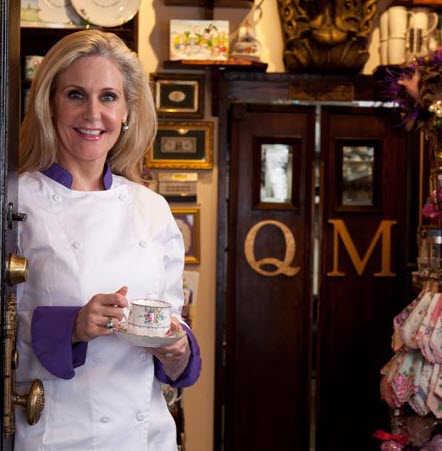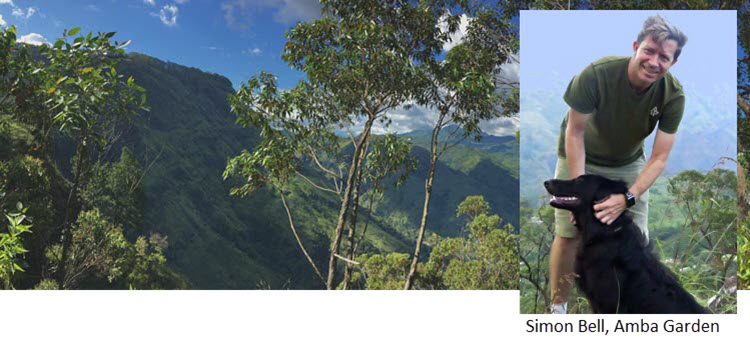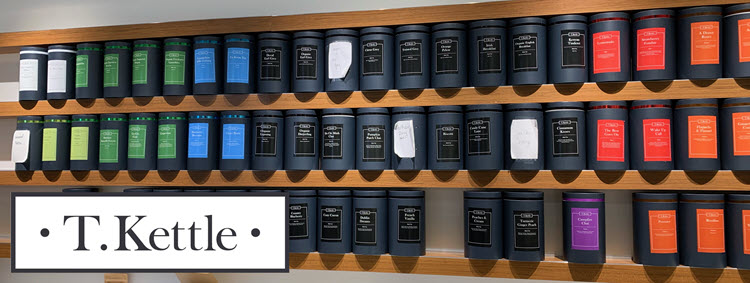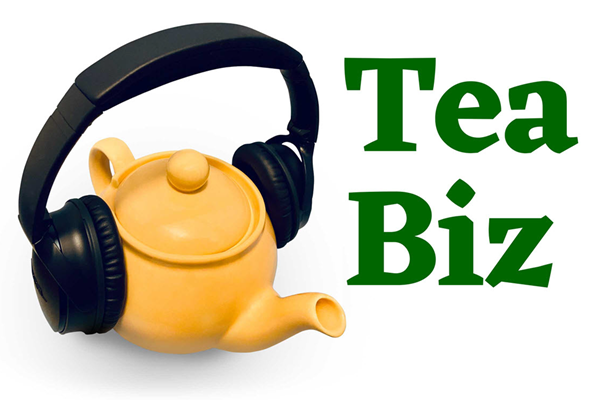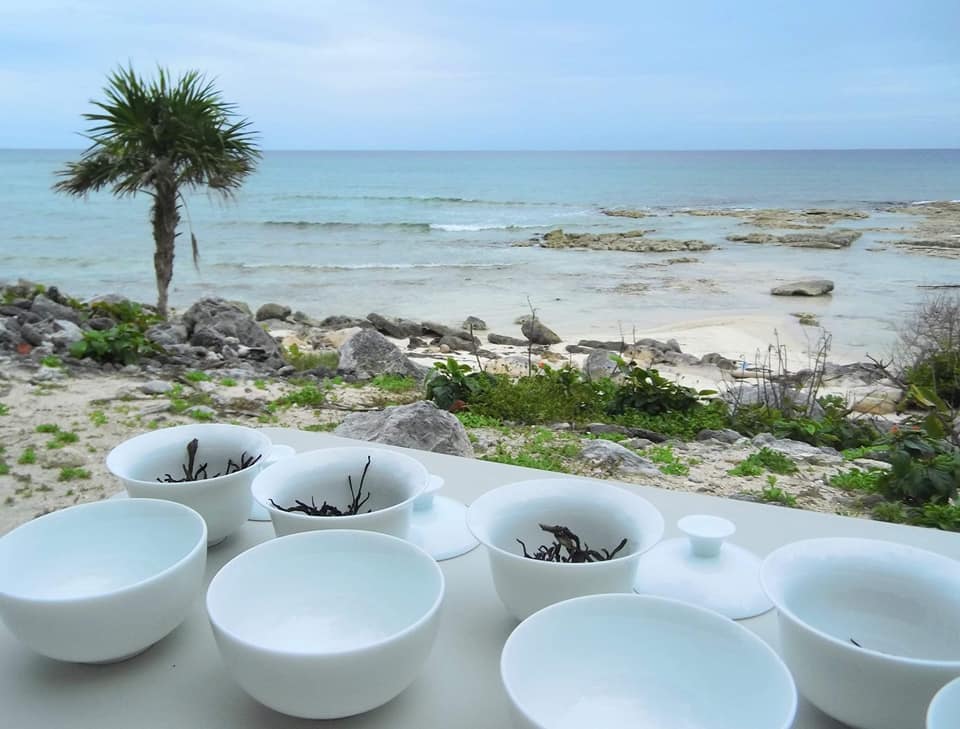
Listen to the Tea Biz Podcast on iTunes | Spotify | Sounder | Stitcher
Hear the Headlines for the Week of March 5

| Brand Relevance in Chaotic Times
| Nepal Announces Tea Traceability Project
| The Danish Tea Association Merges with The European Speciality Tea Association
| YELP! Names a Tea House to its list of Top 100 Places to Eat in America
Features
Differentiating Tea by Terroir
By Dan Shryock
Growers of high quality tea in the United States set out to create something that isn’t available from anybody, anywhere else, an expression of regional flavor grounded in local terroir. Angela McDonald, the president of the US League of Tea Growers, explains that while the quantity of tea grown in the US is limited, that scarcity and unique taste profile adds to its appeal.
“No one is going to buy a Mississippi Yellow Tea from Sri Lanka because it will never be the same,” says McDonald.
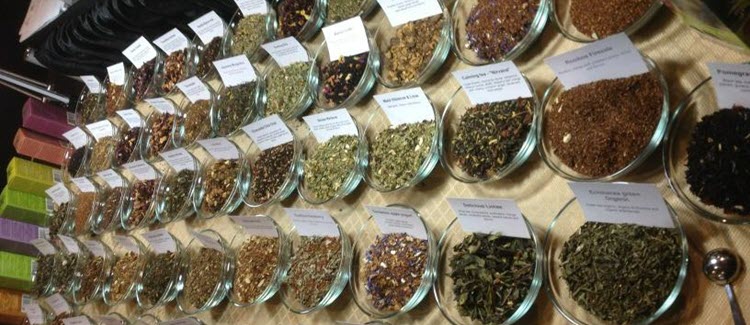
The Business Benefit of Custom Blends
By Jessica Natale Woollard
How creamy do you want your Earl Grey? How much citrus do people like in a green blend? Which inclusions with health benefits are best sellers?
Blending tea is both art and science with a lot of trial and error.
Sameer Pruthee is CEO of Tea Affair, a Canadian blending company based in Calgary, Alberta. With a background in culinary management, Pruthee got his start importing specialty teas in the late 1990s. He was intrigued by blending and flavoring: How to find the right combination of botanicals, strawberry, mango, lychee. What flavor do people gravitate to?
How can blending help achieve business objectives?
During the last 20 plus years, Sameer has built a business blending teas using quality raw material imported from around the world. His aim is to blend as much tea in Canada as possible. In our conversation we focus on how companies can use custom blends to their advantage, and we’ll hear tips on Sameer’s best practices for blending.
News you Need to Know
Brand Relevance in Chaotic Times
Marketing consultancy Prophet announced its Brand Relevance Index this week, scoring companies during a pandemic year that rewarded convenience, comfort, trust and dependability. Apple, Peloton, Kitchen Aid, LEGO, Costco, Honda, PlayStation and Amazon all made the top 10. The Mayo Clinic and Johns Hopkins received positive accolades from the 13,000 consumers surveyed.
Apple has held the top spot for the past six years and seems invincibly relevant.
However, consumer appreciation for Peloton which rose from #35 to #2, the Mayo Clinic which advanced from #24 to #4; LEGO (from #28 to #5) and Costco (from #21 to #6) all reflect behavioral changes easily traced to the pandemic. Prophet credited these brands for “adapting quickly to consumers’ changing needs and expectations, but they do so by remaining ever more true to themselves.”
No tea companies appear on the brand relevance list but in 2020 consumers rewarded tea brands with their loyalty during a time of disruption. While many consumer brands saw declines due to lockdowns tea drinkers calmly steeped at home. The lesson to apply from Prophet’s consumer research “is that all of these brands are customer obsessed, ruthlessly pragmatic, distinctively inspired and pervasively innovative,”
Tea brands should take note – especially the point about becoming pervasively innovative.
Biz Insight – Chinese luxury brand Zhuyeqing advanced to No. 2 on the World Brand Lab’s 2021 analysis of the Global Top 10 Luxury Tea Brands. Twinings (UK), TWG (Singapore), Harney & Sons (US) and Dilmah (Sri Lanka) were all top ranked. World Brand Lab analyzed 5,000 tea brands to identify 300 global (super brands). China is home to many thousands of tea brands, but few are widely known beyond the Great Wall.

Nepal Announces Tea Traceability Project
Publicly declaring the provenance of Nepali tea will increase sales globally, according to advocates of the Sustainable Export Promotion Project. The proposed tea traceability system is financed by the federal government.
“This project will do the work of branding by producing quality tea,” writes Bishnu Kumar Bhattarai, executive director of the Nepal Tea and Coffee Development Board, part of the Ministry of Industry and Commerce. He called on farmers “to be honest to make the effort a success.” The 36-month project will enable the entire supply chain to share information much of which will be available to consumers.
The government allocated 175 million rupees (USD$1.5 million) for the project.
Biz Insight – Throughout Nepal’s recent history nearly all its tea exports were used in blends, obscuring its identity. Eighty percent of the country’s tea is processed as CTC (cut, tea curl). Eighty percent of exports are to India. The remaining 20 percent, approximately 5 million kilos, is hand made. These higher-value “orthodox” teas are purchased by Germany, the US, Canada, and Japan, accounting for 10% of export volume. Nepal has expanded planting to 13 districts beyond the existing five which produced a combined 25 million kilos in 2019. These districts, mainly in the west, are better suited to orthodox production.
The Danish Tea Association Merges with The European Speciality Tea Association
The five-year-old Danish Tea Association will merge with The European Specialty Tea Association, transferring more than 50 members to become ESTA’s Danish Chapter. Danish association president Alexis Kaae currently serves as vice president of the London-based ESTA. Initially cautious of the newly formed ESTA, Kaae said “we are totally confident that our good work of the past will continue in Denmark but within the wider community which is being grown by ESTA.”
Biz Insight – European Speciality Tea Association executive director David Veal said that chapters operate with a degree of independence electing their own board every two years. Chapter members in Denmark can still promote specialty tea locally… “but they will also be able to network with the wider global speciality tea community,” he said. ESTA members reside in 28 countries.
YELP! Names Tea House one of the 100 Top Places to Eat in America
Congratulations to the Copper Kettle Tea Bar in Foley, Alabama for making Yelp’s 2021 list of 100 Top Places to Eat in America. The many steak, sushi, tiki, hot dog, chicken, and fine dining winners on the Yelpers’ Choice list all serve tea but the Copper Kettle, which ranked 66th, is the only tea-themed eatery to meet Yelp’s extensive criteria. The Gulf Coast shop offers sampling, tea classes, and high tea with a huge selection of 115 traditional and sophisticated offerings from Wuyi oolongs and pu’er to gunpowder green teas. There are also wellness, fruit, and honeybush teas as well as rooibos, mate and chai. The shop hosts musicians and tea by the fireside. “We are a little tea house with a big heart,” writes co-owners and sisters Robin Peters and Susan Adams. The shop, housed in a 1930s era cottage, opened in its current location in 2015.





Link to share this post with your colleagues
Tea Biz Episode 7 Mail Chimp Newsletter Link
Subscribe to the Tea Biz newsletter and view archive
https://teabiz.sounder.fm/episode/news-01212021
Subtext
Avoid the chaos of social media and start a conversation that matters. Subtext’s message-based platform lets you privately ask meaningful questions of the tea experts, academics and Tea Biz journalists reporting from the tea lands. You see their responses via SMS texts which are sent direct to your phone. Visit our website and subscribe to Subtext to instantly connect with the most connected people in tea.
Podcast Players
| ITunes | Spotify | iHeart Radio | Stitcher |
| Google Podcast | Amazon Podcasts | Tune In | Sounder |
Subscribe and receive Tea Biz weekly in your inbox.





